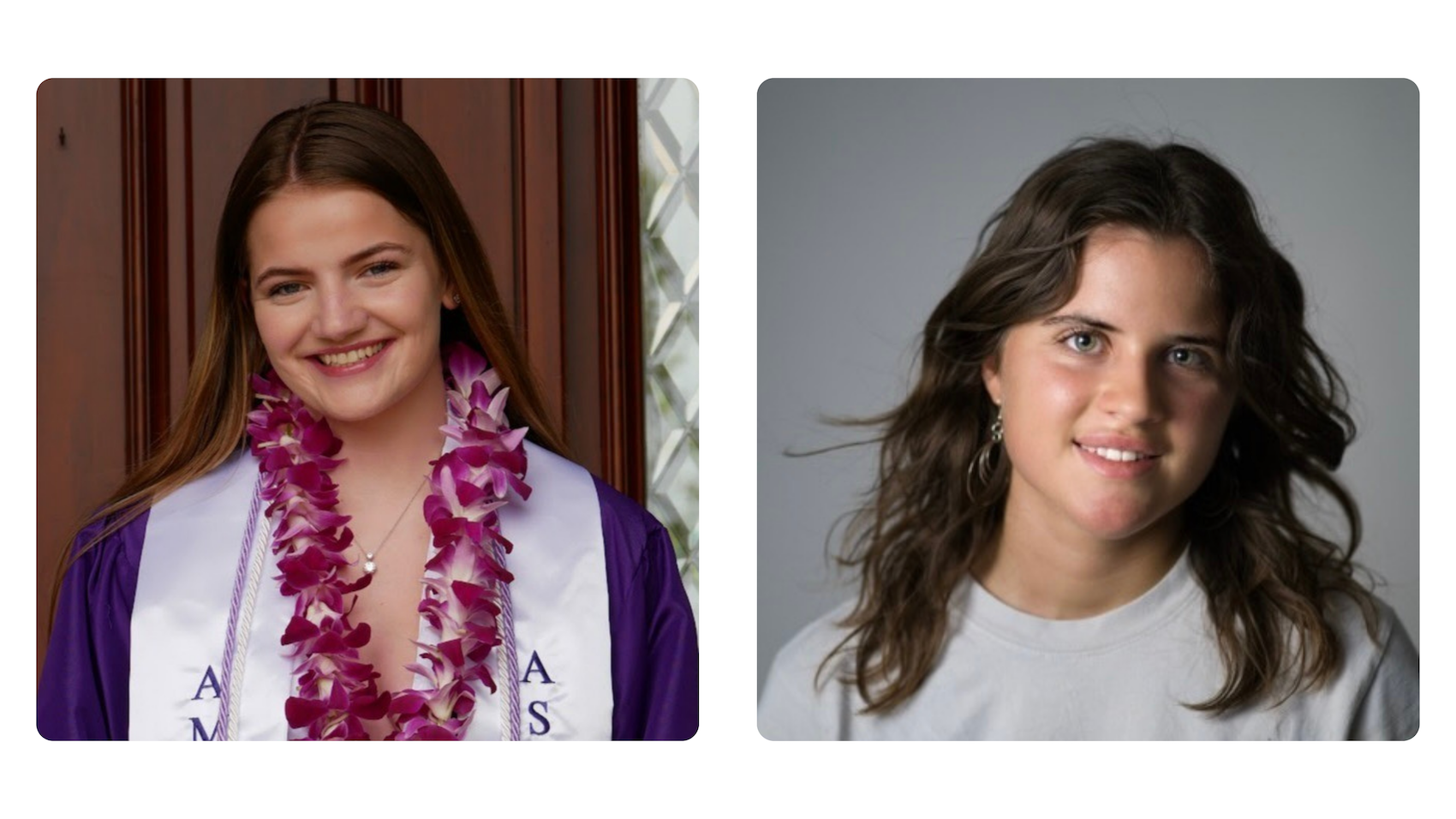From left: Kylie Cancilla, Caterina Ponti
Tell us about your background.
K: I am a third year Data Science student with a minor in Environmental Science at the University of San Francisco.
C: I am a second-year Data Science student with a minor in Neuroscience at the University of San Francisco. Originally from Italy, I recently moved to San Francisco for college.
How did you get interested in data science?
K: My favorite subject has always been math because I love problem solving. Once I learned data can be leveraged to recognize important patterns and predict meaningful target variables I was confident in my decision to become a data scientist.
C: I’ve always loved math and have been fascinated by the many ways data science can be applied to solve real-world problems. The ability to uncover meaningful insights from data and use them to drive positive change is what drew me to the field.
What are you currently working on?
K: My classes right now are helping me grow my skills in SQL, R, Statistics and Java. Outside of school I’m strengthening my skills in PyTorch to be able to build a strong foundation in machine learning and contribute to meaningful research this summer.
C: I am currently taking classes to strengthen my skills in SQL, Python, and R. Beyond the classroom, I’m actively seeking research and industry opportunities for the summer to gain hands-on experience. My goal is to build a strong foundation in machine learning and data science applications in the real world, helping me determine the best path to pursue after graduation.
How did you you first discover WiDS?
Last year, the Association for Women in Mathematics (AWM), a club we are involved in on campus, volunteered to mentor 11th and 12th-grade students at Next Generation Scholars. Through AWM President Chloe Pine, who was an intern for WiDS, we had the opportunity to collaborate with WiDS to help students apply data science for social impact in their Community Uplift project. We facilitated discussions on data analysis techniques such as handling missing data bias, using pivot tables, and applying data filtering to enhance their understanding. It was an incredible experience, as we also got to meet inspiring individuals who work with WiDS, including Chisoo Lyons, the Executive Director of WiDS. This experience made us thrilled to assist with both university and global datathons.
Have you been involved with WiDS since that first experience? If so, in what way?
At the beginning of this school year, we began interning with WiDS to help launch and develop resources for the University Datathon Challenge and later the Global Datathon Challenge. We led four workshops introducing participants from diverse backgrounds to key data science concepts, providing hands-on training in preprocessing, exploratory analysis, and machine learning. These sessions equipped attendees with practical skills and confidence to advance their data science journeys. Additionally, we organized and led three networking events, connecting global participants, facilitating team formation for the Kaggle competition, and fostering cross-border knowledge exchange.
How has WiDS made an impact on your life and/or work?
For the WiDS Datathon, the majority of participants are women and beginners in data science. It was incredibly rewarding to share our experience, provide resources, and help foster a sense of belonging in the field. After workshops we received positive feedback and gratitude from participants that attended the workshops. Seeing participants gain confidence and hearing their inspiring stories reaffirmed the importance of creating inclusive spaces in data science. Additionally, the WiDS Datathon, which focused on models uncovering age- and gender-based patterns in ADHD subjects, highlighted the potential of machine learning in personalized mental health treatment. This experience sparked both our interest in neuroimaging research and applying data science to build a more equitable healthcare system.
What comes next for you? And what are your hopes for women in data science in the future?
K: After graduating from USF I hope to use my technical skills to support applications of technology in meaningful ways especially in the field of environmental science. I would love to help WiDS with future global Datathon’s and with building their relationship with students at the university.
C: After my undergraduate studies, I hope to attend graduate school to explore healthcare applications in data science. Along the way, I want to continue supporting Women in Data Science in any way I can by engaging the clubs I’m involved in, such as Women in Tech and the Association for Women in Mathematics, WiDS initiatives, and the Datathon. What excites me most about the future is applying everything I’m learning to help build a more equitable and just world.
Connect with Kylie Cancilla and Caterina Ponti.
Learn more about the WiDS Datathon.


